Photographs: Ajay Verma/Reuters Aditi Phadnis
The finance minister suggests that maybe his government has erred in its political management.
Getting Finance Minister P Chidambaram to the Imperial Hotel was a tricky negotiation.
He wanted to have lunch at the 1789 in Washington, the restaurant spread over six dining rooms, the favourite dining place of Hillary Clinton and Barack Obama.
I suggested the next best venue, the 1911 at the Imperial, New Delhi, also steeped in history. He recalled that he used to go there a lot with his political mentor, G K Moopanar.
Moopanar would always order Crepes Suzette, enjoying the ceremony when they were flambed at the table.
That was when the Imperial was still a dark, dank place and you tiptoed through the corridors for fear of unsettling the bats. No longer, of course, writes Aditi Phadnis.
…
What will be UPA's economic policies if it comes to power?
Image: P Chidambaram.Photographs: Reuters
Getting to the Imperial from his residence was another challenge.
“Okay, where’s your scooter? Let’s go,” he said. “We can’t go on my scooter !” I exclaimed aghast.
“If you’re taking me to lunch, we have to go in your vehicle. If your vehicle is a scooter, we have to go on that,” he pointed out. I protested: “You’re India’s finance minister. You can’t be gadding around Delhi on the pillion of a scooter.”
The problem, I think, was Chidambaram was not sure if this engagement qualified as official. So should he take his official car? Besides, it was a Saturday afternoon, technically an off-day for the driver.
But there was no choice. Reluctantly, he summoned the driver and we set off. In the restaurant, he warned that he eats very little for lunch but ordered a Nasi Goreng, topped with a fried egg and chicken satay, and bottled water. I added an extra order of French fries that I know he loves.
…
What will be UPA's economic policies if it comes to power?
Image: Beijing's Central Business District.Photographs: Grace Liang/Reuters
The bottled water gave me the entry into the conversation. If he were given the option of being reborn as a citizen of a different country, which one would he choose?
I thought I was luring Chidambaram into a trap. But there was no trapping Chidambaram. “You go to the website of any country, and you will see there is a revolt against corruption and bad governance. I was looking at this yesterday,” he replied.
“But you’ve said how much you admire China. There are no such revolts there,” I argued.
“I have said I envy China,” he corrected me. “That is because of their implementation skills. We have a particular habit of berating ourselves... self-flagellation, if you like,” he said.
“Look at Belgium,” he went on. “They are supposed to be a mature western democracy. And yet, they haven’t had a government in place for months now. What are they fighting over? Whether the language they speak should be Dutch or Flemish. We are such a large country with so many different groups, religions, languages, and yet, we manage to function quite well. That’s why I say: we have this habit of self-flagellation.”
…
What will be UPA's economic policies if it comes to power?
Image: Tightrope walkers perform on Brussels Grand Place.Photographs: Reuters
“Belgium is hardly comparable to India and, besides, in India we have a government without having one,” I replied.
“We have serious problems and we must learn to resolve them. But that doesn’t mean it is the worst place either,” he replied.
“Besides, what if I were not born as a human being at all in India. What if I were to be born as (his eyes looked around and focused on a plate on the next table that had something that looked like a Chateaubriand steak) a cow?”
This was going nowhere. “If we can revive investment and the time lag it takes to get policy off the ground, India too can develop faster...,” he went on.
“Why do all finance ministers in India end up quarrelling with their Reserve Bank of India [RBI] governors?” I interrupted.
…
What will be UPA's economic policies if it comes to power?
Image: P Chidambaram.Photographs: Reuters
“Nobody is quarrelling with RBI governors. The fact is, RBI consults us on most issues and we advise it. It is autonomous, but only on monetary policy. The RBI Act allows the government even to give written directions to the central bank on issues other than monetary policy. It is another matter that there has been no need to do so,” he said.
“RBI is obliged to consult government on currency issues. It must consult the government on bank supervision: after all, the government is the majority owner of public sector banks….”
Chidambaram explained that there was a view that the RBI had been behind the curve when inflation started rising and when it began to tighten monetary policy, it did too much.
“This is not my opinion,” he added quickly, but there are people who believe this. “Surjeet Bhalla, who takes a view often contrary to the RBI’s, sometimes has very valid arguments - not always, but sometimes”.
…
What will be UPA's economic policies if it comes to power?
Image: Trucks move in the Mahanadi coal fields, near Talcher town, in Orissa.Photographs: Rupak De Chowdhuri/Reuters
I became impatient. “Let’s come to the management of the economy. You expect people to invest but you haven’t resolved any of the structural problems in the nine years your government has been in power. The National Highways Authority of India is in battle with the Planning Commission. It has achieved 10 per cent of its target. You’ve created 78,000 Mw of capacity in the power sector in the last two years but still haven’t reached an agreement on coal sourcing…” I started.
“That’s not quite correct. Coal will be made available at 65, 70 and 75 per cent of this 78,000 Mw capacity over the next three years. Coal India will import coal if necessary,” he interrupted me sharply. But India is supposed to have coal reserves for 200 years, I pointed out. What prevented the government from making Coal India more efficient, privatising it, if necessary?
“We don’t have a majority in Parliament,” he replied succinctly, referring to amending the Coal Nationalisation Act. “Coal production has gone into a spin because of all the court cases. Even legitimate legal leases are an issue.”
“You’re trying to do a lot but it is as if you’re running to stay in the same place,” I said. “How many countries have a surplus to invest?” he countered. “But you missed the bus even when we had a surplus,” I argued.
…
What will be UPA's economic policies if it comes to power?
Image: P Chidambaram.Photographs: Reuters
Incredibly, unbelievably, Chidambaram agreed. “We have delayed taking decisions. We’ve paid a price for it,” he admitted.
We turned to politics. What will the United Progressive Alliance (UPA) government’s economic policies be if it comes to power? “We’re so confident about coming to power that we haven’t given thought to it,” he said airily.
So, it will be more dual power centre, more delayed decision-making, more socialist-type doles, more freebies, giveaways, all on the taxpayer’s dime…Chidambaram was suddenly stirred into action.
“Not one media house has written,” he began, “that even with this so-called dual power centre, the UPA achieved 7.9 per cent growth in nine years whereas the average growth during the National Democratic Alliance years was 5.7 per cent.”
…
What will be UPA's economic policies if it comes to power?
Image: P Chidambaram poses next to the bronze statue of a bull outside the Bombay Stock Exchange.Photographs: Punit Paranjpe/Reuters
Chidambaram put this down to the media’s collective “upper caste, upper class bias”. He paid no heed to my “oh, gimme a break” interjection and went on, “our policies will combine a passion for growth with compassion for the poor.”
It was my turn to snort. “Growth? You spent so much political capital on the civil nuclear deal. But people are afraid to invest in the sector because of your leaky liability laws. And look at foreign direct investment (FDI) in retail: so much emotion, so much political loss, and for what?”
“If you raise FDI caps on Monday, you can’t expect FDI to come on Tuesday,” he retorted. “All you people ever do is sing dirges,” he said.
…
What will be UPA's economic policies if it comes to power?
Photographs: Reuters
“Last year also you said investment will fall. Last year, investment was $91.8 billion despite all the dirges. Is this a work of investors who think India is a basket case? This year also I will finance current account deficit fully and safely,” he said.
The source of this confidence? “Agriculture, we’re going to do really well,” he said. “That’s because you’ve had a good monsoon,” I replied. “No, we did a whole lot of things you people never write about: incentives for eastern India’s Green Revolution, electricity for pump sets, agricultural credit…”
But what about other falling indices? purchasing managers index (PMI), the manufacturing crisis…“PMI is based on the perception of people. It is not based on real, measurable indices,” he said.
The meal was over. One scoop of mango ice cream later we were back home. “Time for a short snooze,” he said as we said goodbye. Clearly, the finance minister was so confident of managing economic problems, he didn’t want to lose any sleep worrying about them.

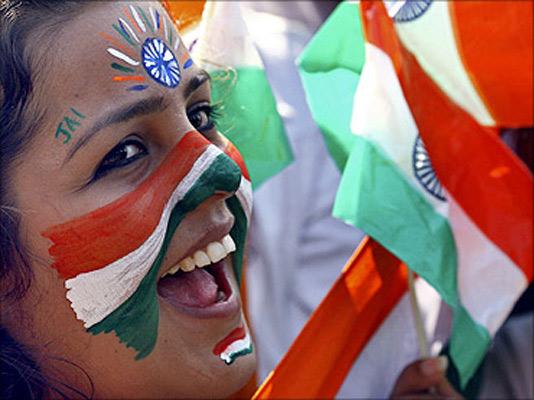
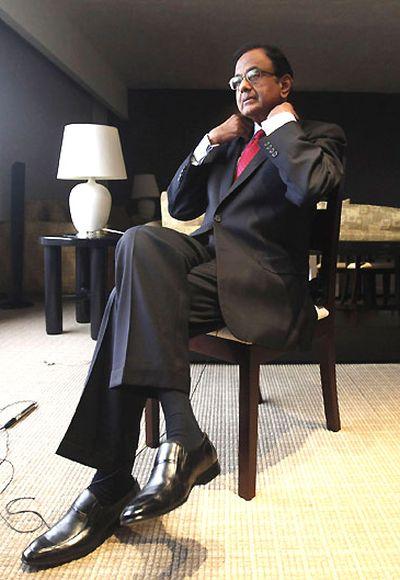
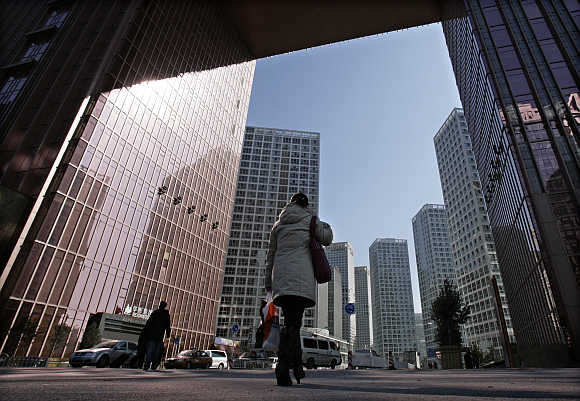
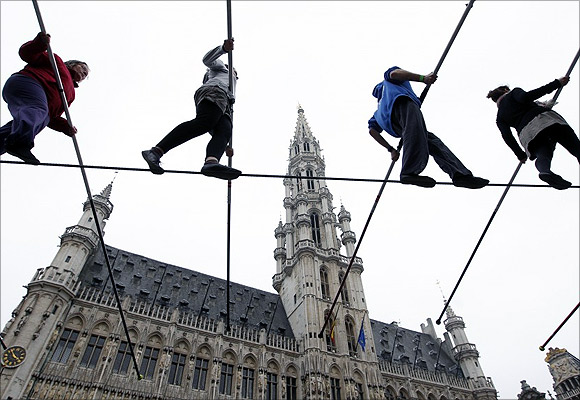
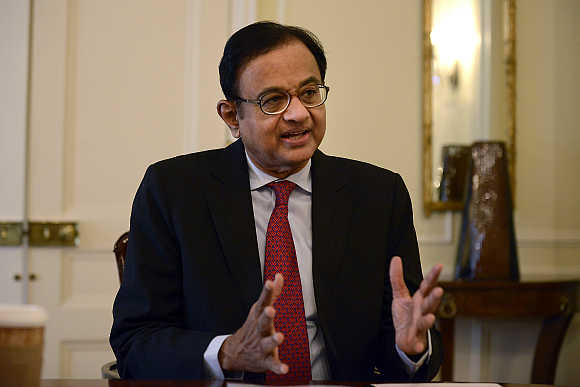
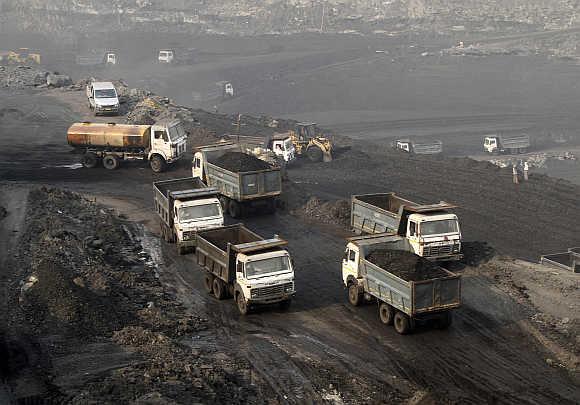
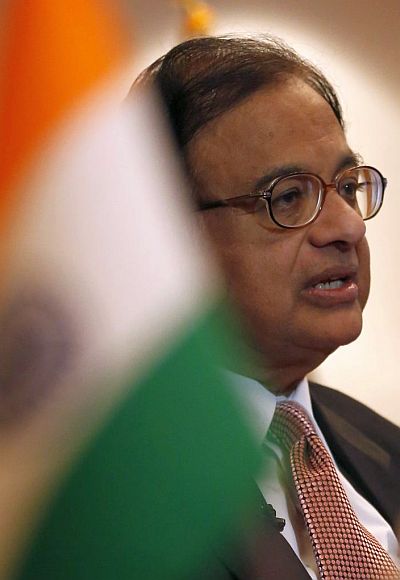
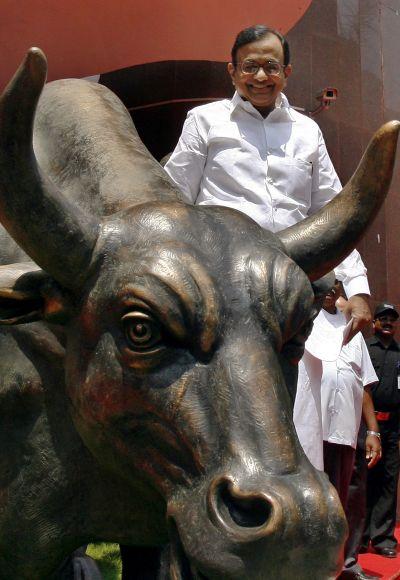
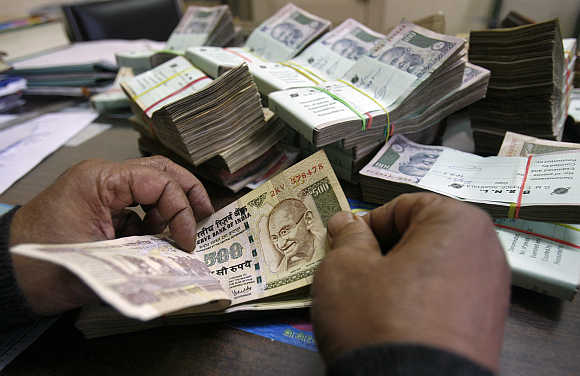

article